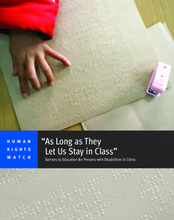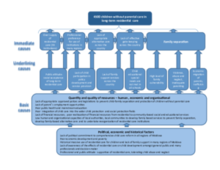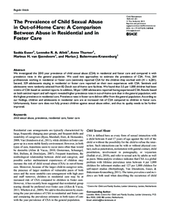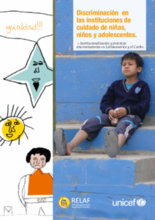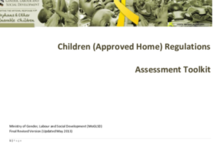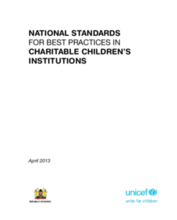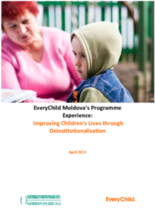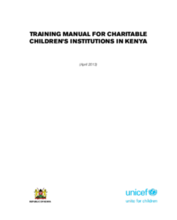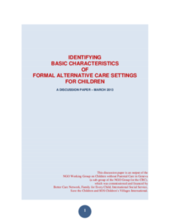Displaying 1241 - 1250 of 1511
Across China, children and young people with disabilities confront discrimination in schools.
This graphic provides a visual representation of the causal framework of children’s institutionalization in Moldova. It was developed as part of the USAID/DCOF-funded project “Protecting children in Moldova from family separation, violence, abuse, neglect and exploitation.”
This article describes the historical background and current situation of the child welfare system for children without parental care in Poland.
Researchers investigated the prevalence of child sexual abuse in foster care and residential care facilities and found that 3.5 children per 1,000 had been victims of child sexual abuse.
El presente informe refleja distintos aspectos del fenómeno de discriminación que sufren las niñas, niños y adolescentes sin cuidado parental que residen en instituciones de América Latina y el Caribe.
This assessment toolkit and associated supporting documentation has been created to assist PSWO’s and Child Care Institutions to achieve compliance with the Children (Approved Home) Regulation 2010.
This document was developed with the aim of assisting Charitable Children’s Institutions (CCIs) in Kenya to boost their capacity for determining which children need to be admitted into CCIs, how to provide adequate care and protection to the children and how to plan the eventual exit of the children back to their families and communities.
This Program Review documents the evolution of EveryChild/Partnerships for Every Child’s Program in Moldova since 1994, presenting the development of interventions to improve the lives of children through deinstitutionalization and identifying the best practices and lessons that may be relevant, useful, and replicable to other initiatives and organizations around the world.
This training manual has been developed with the aim of enhancing the capacity of Charitable Children Institutions (CCIs) in providing services to children under their care.
The discussion paper provides an overview of existing definitions of formal care within the UN Guidelines and a summary of the basic characteristics identified for each, together with explanations for the proposed characteristics.

